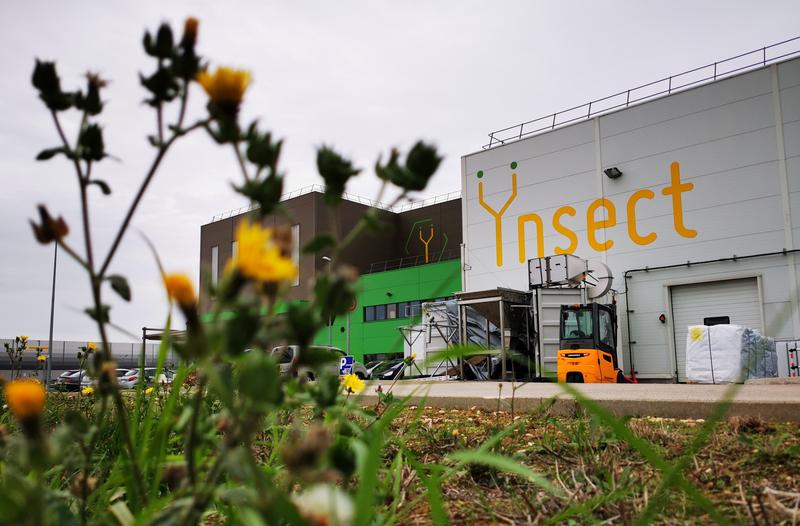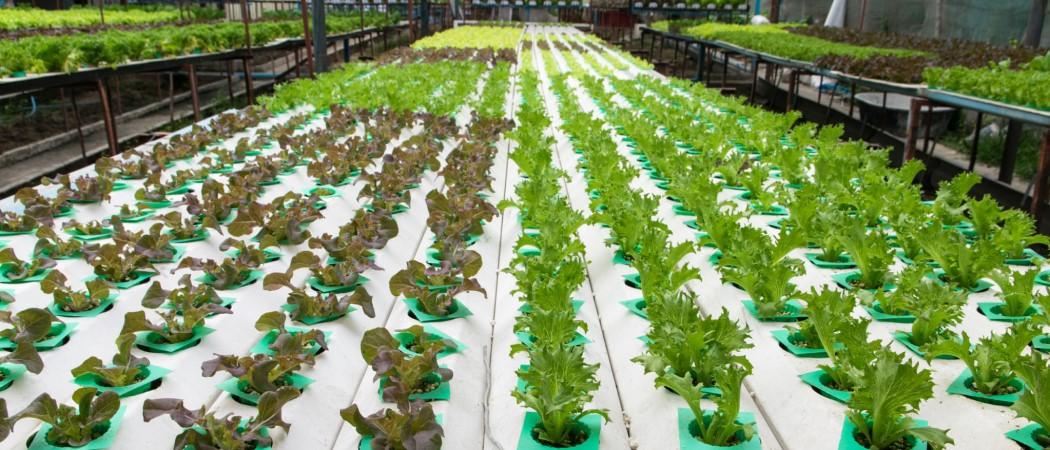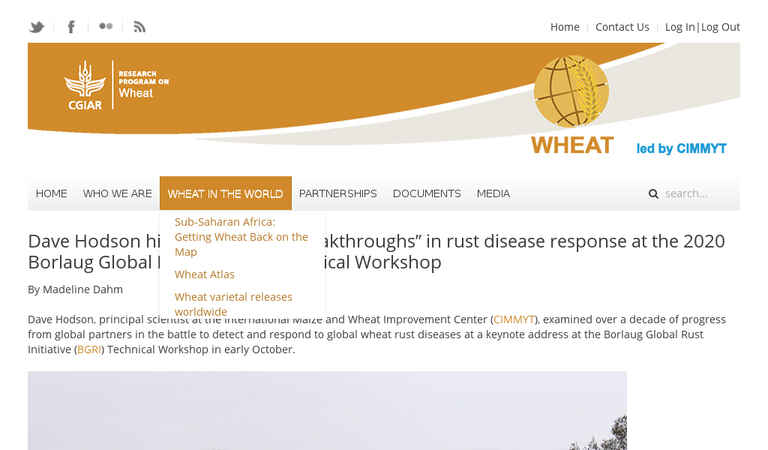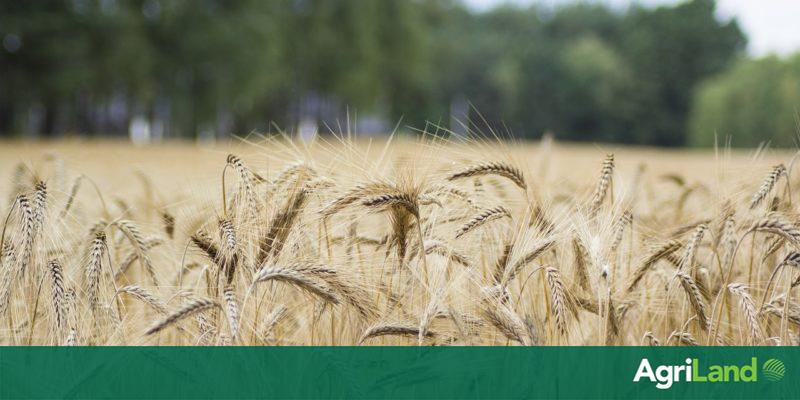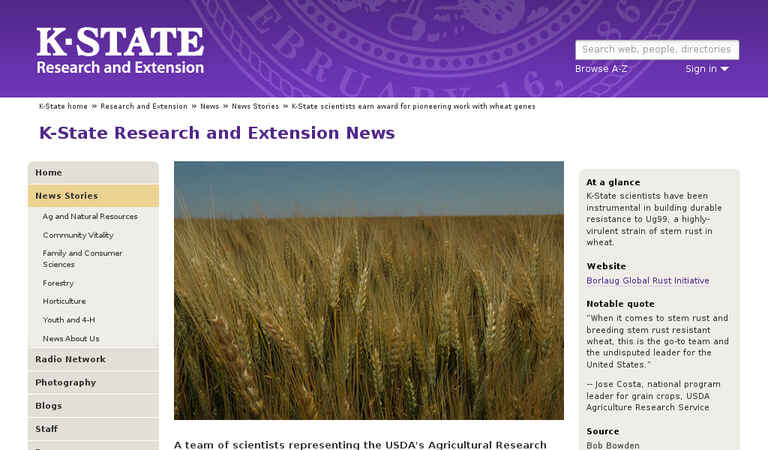10/24/2020 SOURCE: www.reuters.com
Growing global demand for food is putting a squeeze on available land and one French startup says it has the answer: indoor insect farming.
French startup Ynsect to build world's biggest bug farm
-
(1)
-
Bookmark
- Comments. (0)
10/24/2020 SOURCE: phys.org
ASPB is pleased to announce the publication of noteworthy research investigating water-saving alternatives for photosynthesis in temperate environments, which are likely to become hotter and drier in ...
Engineering drought-resistant crops with Crassulacean acid metabolism (CAM) photosynthesis
-
(0)
-
Bookmark
- Comments. (0)
10/24/2020 SOURCE: sciencebusiness.net
The EU should make use of innovative breeding technologies to boost sustainability of food production, agriculture ministers agreed on Monday, as they gave their stamp of approval to the European Commission’s ‘Farm to Fork’ plan to reduce the use of fertilisers by 30 per cent and turn 25 per cent of agricultural land over to organic farming. The ministers called for the use of “new innovative ingredients and techniques” to boost sustainable food production, as long as they are shown to be safe for humans, animals and the environment. This was with reference to precision breeding using gene editing, which enables genetically modified organisms to be generated without introducing genes from other species. As things stand, the technology cannot be used in the EU, following a 2018 ruling by the European Court of Justice, which founds genome editing is subject to the 2001 EU directive banning genetically modified organisms. Researchers in 120 institutes across Europe have asked the commission to reverse the court ruling, arguing precision breeding and genome editing are a speeded-up equivalent of traditional breeding techniques and could increase the genetic diversity of crop plants, reduce use of pesticides, and further the development of healthy food. Agriculture ministers want the commission to complete its study of the status of novel genomic techniques under EU legislation by April 2021. The commission’s view is that precision farming technologies should underpin the transition to eco-friendly food production. Frans Timmermans, the commission’s executive vice-president for the European Green Deal said the EU aims to give farmers the tools to adopt precision agriculture and to leverage scientific discoveries to optimise seeds. “That's how we limit our dependency on pesticides,” Timmermans told delegates at the EU Green Week conference last week. “Going to ecological farming doesn't mean we all have to munch on grass and live in caves, we need to use the latest technology to get us ther...
Member states want commission to decide on the use of gene editing in animal and plant breeding
-
(0)
-
Bookmark
- Comments. (0)
 John LaRose Jr.
John LaRose Jr.
Topics: Wheat, Research, World Hunger, World Population, Education,
-
(0)
-
Bookmark
- Comments (0)
 John LaRose Jr.
John LaRose Jr.
Topics: Agriculture US, Agriculture Global, Economics, Sustainability, World Hunger, World Population, Coronavirus/COVID,
-
(0)
-
Bookmark
- Comments (0)
 John LaRose Jr.
John LaRose Jr.
Topics: Precision AG , Agriculture US, Crop Consultant, Agriculture Global, Poultry, Sustainability, Ag Global Specialty Food, Ag Innovation, World Hunger, World Population, Coronavirus/COVID,
5 poultry innovations ready to change the industry in 2021
COVID-19 posed numerous challenges for the poultry industry, from worker shortages to interruptions throughout the supply chain. New technologies can help the industry solve these issues and look forward to future opportunities to thrive and succeed.
-
(0)
-
Bookmark
- Comments (0)
 John LaRose Jr.
John LaRose Jr.
Topics: Agriculture Global, Food/Nutrition, Food Waste, Sustainability, World Hunger, World Population, Ag South America,
Latin America poised to lead the next 50 years in food systems and agrobiodiversity research
CGIAR centers make strong case for Latin America as the best place for investing in solutions to overcome challenges to global agriculture from climate change, pandemics and more.
-
(0)
-
Bookmark
- Comments (0)
 John LaRose Jr.
John LaRose Jr.
Topics: Soil Health, Sustainability, World Hunger, World Population, Regenerative Agriculture, Ag Middle East,
The Story of Al Baydha: A Regenerative Agriculture in the Saudi Desert. قصة مشروع البيضاء
The final update from Al Baydha Project Co-founder Neal Spackman, 9 years in. How desertification resulted from the loss of an indigenous land management sys...
-
(0)
-
Bookmark
- Comments (0)
 John LaRose Jr.
John LaRose Jr.
Topics: Markets/Pricing, Sustainability, World Hunger, Government / Policies, World Population,
Report: 60% of global population worries about food safety - Agriland.co.uk
An international study on the global food safety has revealed more than half the world’s population (60%) worry about the food they eat and 51% concerned about the safety of the water they drink. The Lloyd’s Register Foundation World Risk Poll, which is the first of its kind, showed 17% of respondents – equivalent to one […]
-
(0)
-
Bookmark
- Comments (0)
 John LaRose Jr.
John LaRose Jr.
Topics: Wheat, Agriculture US, Sustainability, Research, World Hunger, World Population, Education,
K-State scientists earn award for pioneering work with wheat genes
K-State scientists have been instrumental in building durable resistance to Ug99, a highly-virulent strain of stem rust in wheat.
-
(1)
-
Bookmark
- Comments (0)


